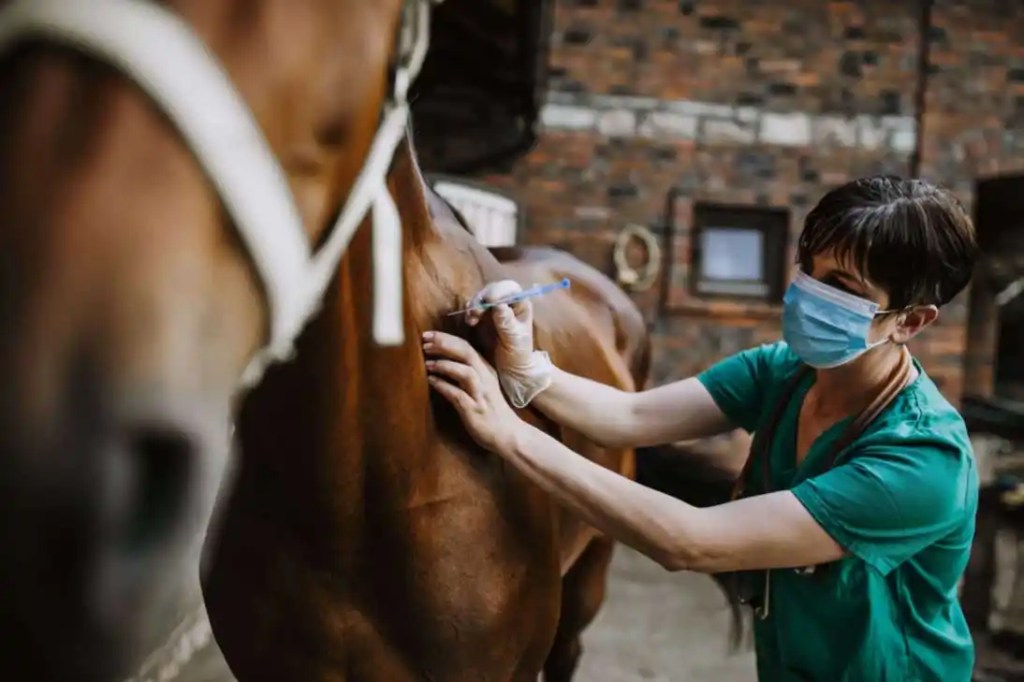
How can you become a veterinarian?
Here is a step-by-step guide that tells you how to become a veterinary professional you’ll need to put in the time, effort, and intense study sessions.
How can you become a veterinarian?
As a veterinarian, you’ll make a commitment to protecting the lives of animals and advocating for their welfare. In order to become a veterinary professional, you’ll need to put in time, effort and some intense study sessions.
Although significant commitment is required to train to become a vet, the career offers excellent financial rewards as well as an enormous sense of wellbeing. As per data released by the U.S. Bureau of Labor, veterinarians can have a salary range of $50,000 to $200,000 every year.
What else does it take to be a veterinarian?
Technical knowledge and practical skills are essential in the veterinary profession but you’ll also need a specific set of soft skills and character attributes to thrive. Here are a few skills you should master to become a top-class veterinarian:
- Good communication skills
- Conflict resolution skills
- Ability to work under pressure
- Emotional quotient or intelligence
- Strong negotiation skills
How to become a veterinarian
The road to becoming a good veterinarian can be challenging. However, having a structured roadmap makes it easier to get there. Here is a step-by-step guide that tells you how to become a vet.
- Focusing on the right course prerequisites
Most veterinary medical schools require a specific number of subjects, credits or work experience to enroll on their programs. Hence, it can be a good idea to complete those vet school requirements while you’re still earning your bachelor’s degree.
Prioritizing the right undergraduate course and getting the desired grades can secure admission into a reputed DVM program. You can also look at joining specific pre-vet clubs in your undergraduate program to pick up some extra medical school experience.
At St. Matthew’s University School of Veterinary Medicine (SMUSVM), you need to complete the following prerequisite coursework before gaining admission into the DVM program:
- General Biology
- Biochemistry
- Organic Chemistry
- General Chemistry
- College Math or Computer Science
- Language Arts/ English
Click here to learn more about the coursework requirements.
- Getting the relevant experience early on
If you are considering going into the veterinary profession, you should be looking for as many opportunities as possible to get hands-on experience working with animals. Apart from meeting the clinical requirements at medical school, you can get an internship at a veterinary clinic or join an animal welfare NGO.
Getting a diverse range of experience not only builds your resume, but it can also demonstrate your commitment to helping animals. Another benefit of getting early hands-on experience is that you can get glowing recommendation letters from your employers to further enhance your application.
- Applying for a vet program at a reputed school
Once, you have completed your coursework and have enough experience tending animals, you’ll be ready to apply for the best veterinary programs.
You should look for well-recognized schools that can arrange for good clinical rotations. You should also look for programs that have a capable faculty.
SMUSVM is accredited by NCFMEA which uses similar standards to the ACCM, the accrediting body for medical schools in the US. SMUSVM is also a member of the Association of American Veterinary Colleges (AAVMC).
The faculty at SMUSVM is highly qualified and experienced with each faculty member holding a DVM; many also hold PhDs.
SMUSVM has partnered with many US and Canadian based veterinary medicine colleges to provide quality clinical rotations for its students. These hands-on training sessions will bring students into direct contact with various species of animal and state-of-the-art diagnostic and treatment technology.
Searching for an excellent Caribbean vet school that offers quality education and a good student experience? SMUSVM can provide all that and much more!
At SMUSVM, tuition fees per semester start at just $17,175 – making the school more affordable than many comparable American or Canadian veterinary colleges. In addition, small class sizes and student mentor programs ensure each student receives personalized attention. You will also get an opportunity at this veterinary school in the Caribbean to get involved in the local community’s animal programs.
Click here to apply for the veterinary program at SMUSVM today!
- Passing the NAVLE with a good score
The North American Veterinary Licensing Examination (NAVLE) is probably the most crucial exam you’ll take when training to become a veterinarian. A good score on the NAVLE can also help you gain a veterinary residency in your preferred specialization.
The rigorous veterinary basic science curriculum and high teaching quality at SMUSVM ensure that you are well-prepared for the NAVLE. That is why SMUSVM has achieved a 92% first-time pass rate over the last three years.
Once you obtain your license, you can begin practicing immediately. However, as there are a number of specializations in the field, it can be a good idea to gain further training and certifications.
These certifications can help you take advantage of the growing demand for qualified vets across the U.S. and the rest of the world, whilst also improving your career prospects.
This article was written by Sweha Hazari.